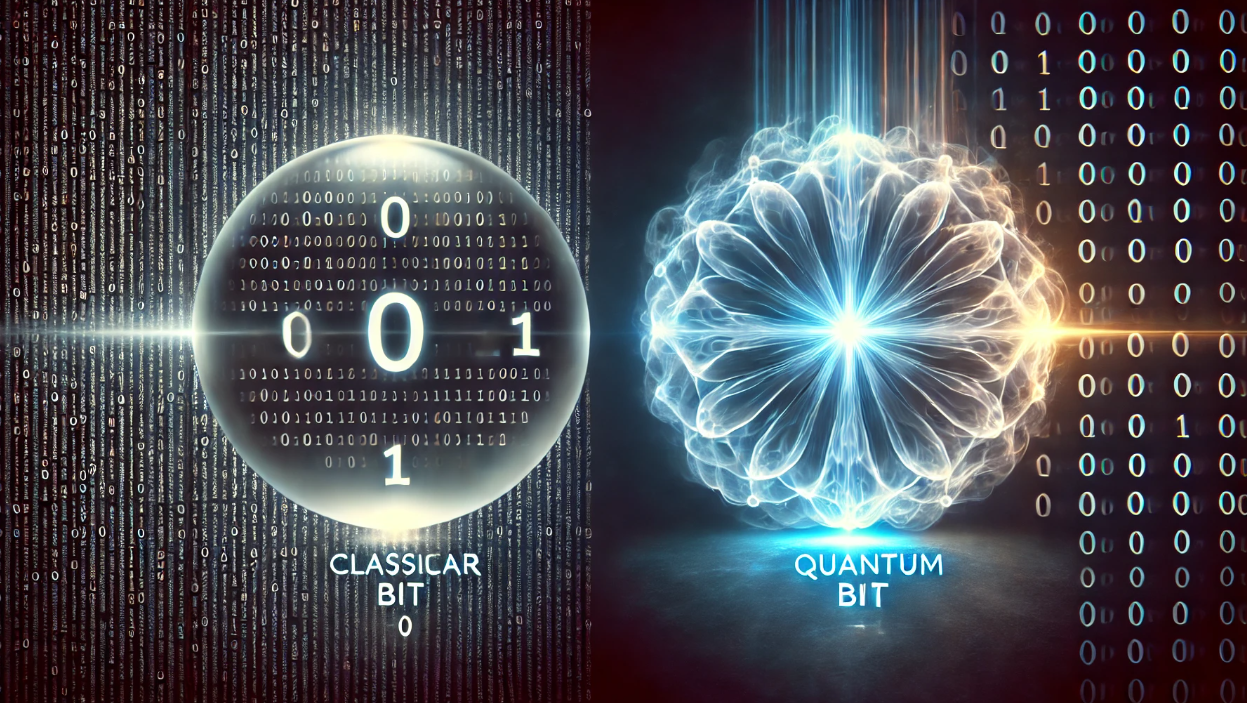⚛️ Quantum Computers vs Classical Computers: What’s the Difference?
A clear, side-by-side look at today’s most exciting technological shift
Introduction
Quantum computing is no longer just a buzzword in academic labs—it’s inching closer to real-world applications. But with all the hype, there’s also confusion:
How is a quantum computer different from a classical one?
Is it better? Faster? Smarter? Or just different?
In this post, we’ll break down the key differences between quantum and classical computers, where each excels, and when it makes sense to use one over the other.
Let’s simplify the science and help you see the big picture.
1. Processing Power: Bits vs Qubits
| Feature | Classical Computer | Quantum Computer |
|---|---|---|
| Basic Unit | Bit (0 or 1) | Qubit (0 and 1 at the same time) |
| Storage | Binary – stores one value per bit | Superposition – stores many values per qubit |
| Processing | One calculation at a time (sequential) | Parallel processing of many possibilities |
What This Means:
A classical computer solves problems by checking one possibility at a time (very fast), while a quantum computer checks millions of possibilities simultaneously, thanks to superposition and entanglement.
Analogy:
-
Classical = A flashlight lighting one room at a time
-
Quantum = A chandelier lighting the whole building instantly
2. Problem-Solving Capabilities
Quantum computers aren’t just faster—they’re fundamentally different in how they solve problems.
✅ Quantum Computers Excel At:
-
Factoring large numbers (breaking encryption)
-
Quantum simulations (chemistry, physics, materials)
-
Complex optimization (like routing or scheduling)
-
Probabilistic AI and machine learning
✅ Classical Computers Excel At:
-
Everyday tasks (email, spreadsheets, gaming)
-
Web hosting, databases, content creation
-
General-purpose applications
Reminder: Quantum computers are not replacements, but specialized tools for specific types of complex problems.
3. Real-World Use Cases
| Use Case | Classical Computer | Quantum Computer |
|---|---|---|
| Web browsing, gaming, productivity | ✅ | ❌ (Not designed for this) |
| Secure banking, email | ✅ | ❌ (Not needed here yet) |
| Cryptographic decryption | (Impractical) | ✅ (Shor’s Algorithm could crack RSA encryption) |
| Molecular modeling for drug discovery | Slow and costly | ✅ Extremely efficient |
| Weather simulation or quantum physics | Computationally intense | ✅ Quantum-native modeling |
| Portfolio optimization (finance) | ⚠️ Slow with many variables | ✅ Can model complex risk scenarios |
4. Limitations of Quantum Computers (in 2025)
Despite their promise, quantum computers still face real challenges:
Limitations:
-
Qubits are fragile and error-prone (noise is a big issue)
-
Require ultra-cold environments (near absolute zero)
-
Only small-scale problems can currently be run
-
Not yet ready for consumer or mainstream business applications
-
Still in the R&D phase for most industries
Most companies today use quantum simulators or hybrid quantum-classical models.
5. When Does Quantum Make Sense (and When It Doesn’t)?
| Scenario | Quantum Makes Sense? |
|---|---|
| Building a website or app | ❌ No |
| Managing a database or running email servers | ❌ No |
| Predicting protein folding for new medicine | ✅ Yes |
| Real-time fraud detection across millions of users | ✅ Yes |
| Training complex AI models on huge datasets | ✅ Possibly |
| Running your business operations or accounting | ❌ Not yet |
If your problem involves millions of potential combinations, especially in physics, finance, or AI, quantum may eventually offer a breakthrough.
️ 6. Summary Table: Quantum vs Classical at a Glance
| Feature | Classical Computer | Quantum Computer |
|---|---|---|
| Unit of Info | Bit | Qubit |
| States | 0 or 1 | 0 and 1 at the same time |
| Processing | Sequential | Parallel (probabilistic) |
| Best For | Everyday tasks | Complex scientific problems |
| Maturity | Fully developed | Experimental/emerging |
| Availability | Global/commercial | Limited (IBM, Google, etc.) |
Final Thoughts
Quantum computers aren’t here to replace classical machines—they’re here to tackle what classical computers can’t.
They’re the scalpel to the classical computer’s Swiss Army knife.
In 2025 and beyond, you’ll likely use both:
✅ Classical for day-to-day operations
✅ Quantum for solving “impossible” problems in science, security, and big data
Stay informed, not intimidated—quantum is coming, and understanding the basics today prepares you for the breakthroughs of tomorrow.

